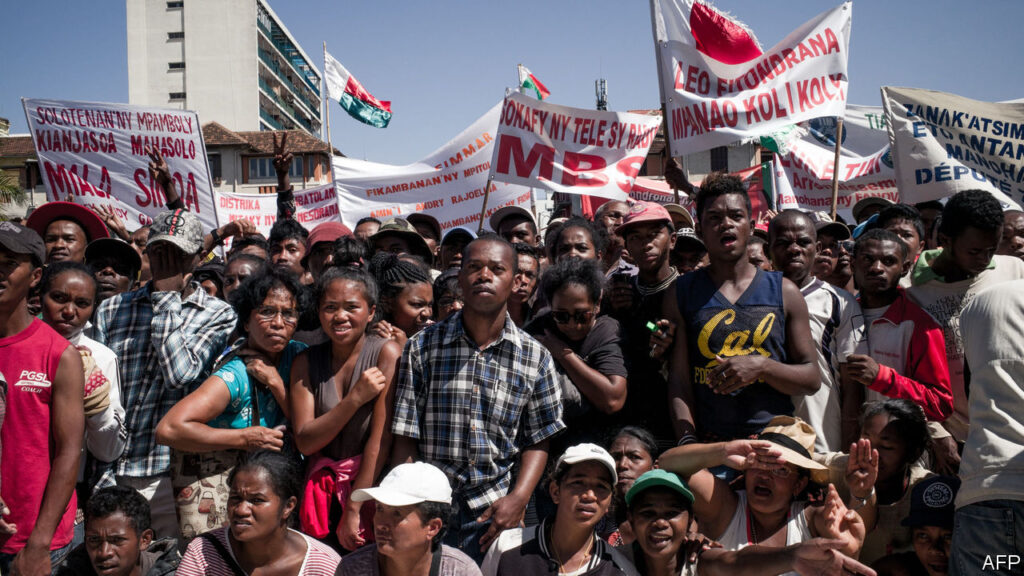In Madagascar, a nation teetering on the brink of technological progression, protests have erupted in the capital, underscoring the challenges posed by insufficient infrastructure and digital connectivity. With the populace increasingly discontented due to frequent water and power outages, offline communication tools are gaining unexpected traction as citizens seek alternative means to stay connected and informed amidst unrest.
Madagascar’s Digital Struggles Amid Civil Unrest
Protests and Political Upheaval
The streets of Madagascar’s capital are no stranger to protest, but recent demonstrations have turned violent due to prolonged water and electricity shortages. The unrest has propelled an immediate governmental response, including the imposition of a night-time curfew to stem looting and confrontations. The protests have resulted in at least five fatalities, leading to the dismissal of the country’s Energy Minister.
Rise in Bitchat Usage
Amid this tumultuous backdrop, interest in digital tools like Bitchat has surged remarkably. Google Trends indicated a sharp spike in searches for “Bitchat” in Madagascar—an indicator of the escalating reliance on the app during the crisis. Bitchat’s appeal lies in its ability to facilitate communication sans internet or cellular networks through Bluetooth mesh technology. This feature is critical, especially when regular communication channels are disrupted due to political or infrastructural instability.
The blockchain-based app, which integrates with the Bitcoin network to securely execute transactions, has seen a notable increase in downloads. Reports highlight that there were over 21,000 new installations just in the last day, reflecting growing interest and dependency on such technologies in digitally underserved regions.
Madagascar’s Internet Accessibility Challenges
Despite these technological advancements, Madagascar grapples with a significant digital divide. According to DataReportal, by early 2025, a mere 6.6 million out of nearly 32 million residents had internet access. Most of the population remains offline, highlighting the vast gap in information accessibility and economic opportunities exacerbated by limited digital infrastructure.
Can Bitchat Bridge the Communication Gap?
Bitchat’s off-the-grid capabilities present a pivotal solution for many Malagasy who must navigate a world hindered by restricted internet services. The platform’s emphasis on privacy—using end-to-end encryption and cryptocurrency wallets instead of conventional phone numbers—provides a secure communication channel during periods of social and governmental unrest.
As the nation withstands these socio-political tests, tools like Bitchat are emerging as vital alternatives to traditional communication networks, especially in settings where digital disruption is commonplace.
FAQs
Why has Bitchat become popular during the Madagascar protests?
During the unrest, Bitchat became popular because it works without an internet connection, which is crucial in a region where network disruptions are common. Its end-to-end encryption and blockchain integration also offer secure communications, which are vital during socio-political turmoil.
How does Bitchat ensure user privacy?
Bitchat ensures user privacy through its end-to-end encryption, making messages readable only by the intended recipient. It also uses ephemeral messaging to automatically delete conversations after they’ve been read, and it replaces traditional identifiers like phone numbers with cryptocurrency wallets for added anonymity.
Will the digital divide in Madagascar affect its economic growth?
The digital divide in Madagascar poses a significant barrier to its economic growth by limiting access to information and the digital economy. Without improved internet access, many Malagasy citizens may continue to face challenges in education, employment, and business opportunities, which could hamper the nation’s broader development efforts.
By understanding these dynamics, stakeholders can address the critical issues of digital access and infrastructure, leveraging tools like Bitchat to navigate the challenges posed by the digital divide, particularly in periods of crisis.

